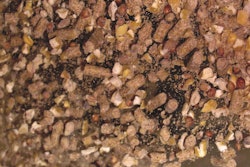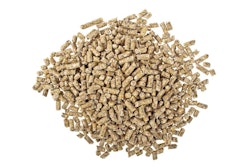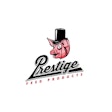
State bill calls for increased registration fees after multiple feed recalls burn through state fund
After more than 20 years without an increase, the Oregon senate has proposed a bill to raise the state’s feed product registration fee after a rash of recent feed recalls.
Senate Bill 36 would authorize the Oregon Department of Agriculture to raise fees associated with registered new feed products or feed manufacturing facilities through an administrative process, capping the potential fees at $60 per formulation, and $1,000 per feed manufacturer. Currently, feed manufacturers in Oregon pay $20 to register a new product, and up to $500 per facility.
The Oregon bill is one of three similar proposals on the table in the U.S., according to Victoria Broehm, a spokesperson for the American Feed Industry Association. South Carolina is mulling an increase to its equine feed tonnage tax, and Maryland is looking to add a second fee to registered pet food products to fund the state’s spay and neuter program.
In the case of Oregon’s proposal, the state Department of Agriculture holds that the fee increase is necessary to cover costs accrued by recent recall activity, including adulterated feed for cattle, a batch of rabbit feed with excess vitamin D, and large quantity of diatomaceaous earth brought into the state and used in part as a feed ingredient that contained dioxins, introducing the pollutant to animal feed.
Andrea Cantu-Schomus, a spokesperson for the Oregon Department of Agriculture, said several other factors have also contributed to the proposed fee increase. Over time, she said, a decrease in the number of registered products, combined with the fact that the fees have not been adjusted for decades, cause the feed inspection program’s expenditures to outpace revenue brought in by licenses and product registrations.
At its most recent board meeting, Oregon Feed and Grain Association executive secretary Marvin Kropf said the Oregon feed association has decided it will not oppose the fee increase, given that the requested increase is relatively small and the reality that the fee has not increased for some time.
“There has been no change in fees since the late ’60s or early ’70s. It might go back to 1962,” Kropf said. “I’ve been in the business for most of my life and did the registrations, and … there was a $20 fee per product for as long as I can remember.”
Kropf said he also understood that the Department of Agriculture would not likely raise fees to the $60 maximum for some time. Rather, he said he understood the department planned to set fees at $35 per product, at least initially.
The Oregon Feed and Grain Association also hopes that the fee increase will result in more feed inspection activity, especially in light of this past year, during which he said no in-person inspections took place due to COVID-19.
“The mood of the board when we discussed this,” he said, “was that there was a certain amount of inevitability. We do need to fund the program if we want it to continue.”

















